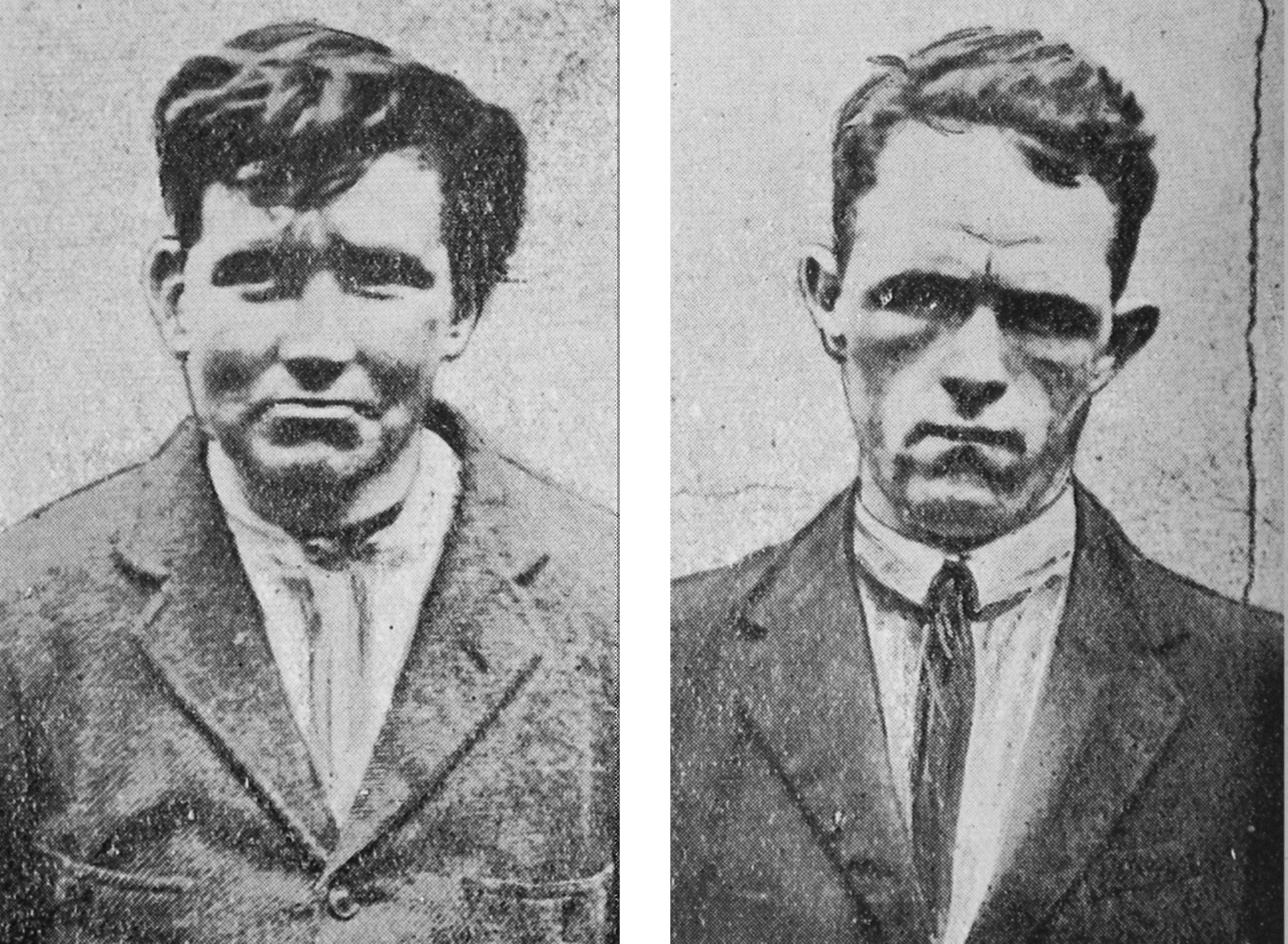
Most of the hearing was occupied by evidence of the shooting of Sir Henry, but Chief-inspector Brown told of some discoveries he had made at O’Sullivan’s home in Little James street. Under the bed in the prisoner's room he found a cardboard box which contained six bandoliers, and in a cupboard he found six copies of the official organ of the Irish Volunteers. He also found a letter addressed to "Mr Joseph O'Sullivan," which was written and signed in Gaelic. Mr Travers Humphreys (who appeared for the prosecution) read passages from the letter thus: "I am sending you a few cigarettes, Joe, as a birthday present for your last birthday. Things are very busy here, for we who swore to maintain the Republic, intend doing so. I know, Joe, you are not a Free Stater. You could not be. You would never consent, after these hundreds of years of fighting, to Ireland becoming part of England. Of their own free will there were always men who took up arms to prevent that, thank God, and there are still today. Ireland is still continuing to be a free and independent republic. For that men gave their lives and suffered hardships. No, Joe, we will have no Free State Governor, no oath to the King, and no Ulster cut off from the rest of Ireland. The fight must go on. Some good men have given way under tile influence of Lloyd George, but we give no allegiance to de Valera, nor to Collins, nor to Griffith. We are not politicians. We give our allegiance to the republic, and, if needs be, our lives." The writer gave his address as Carrigrohane, County Cork, and the notepaper was headed "The Irish Republic". During most of the evidence, O’Sullivan and Dunne seemed bored, but the former repeatedly smiled when a witness, describing the chase, spoke of O'Sullivan, who is lame, "hopping and running." Dunne, who is the powerfully-built one of the pair, also appeared much amused when a slightly-built, middle-aged man described how he tried to reach the fugitive "to lay him flat".
Homeless in Dunedin
A statement that there are quite a number of men sleeping out in Dunedin was made to a Daily Times reporter by one who is closely in touch with the unemployment situation. The present weather conditions are not likely to make this form of repose attractive, and if the statement is to be taken as quite reliable it betokens distress of an extreme nature. According to the informant, the sleepers-out do not lie down "under the wide and starry sky," — refuge from the nip in the air being sought in deserted buildings about town.
Infections affect OBHS and OGHS
A mild form of measles is very prevalent about Dunedin at the present time, and the attendances at both the Boys’ and Girls’ High Schools have been seriously affected by it. Thirty-eight cases of measles are reported from the girls’ school and two teachers are down with it, another being absent through influenza. There were 81 absences from the boys’ school on Monday, the majority being away on account of measles.
ODT, 16.8.1922












